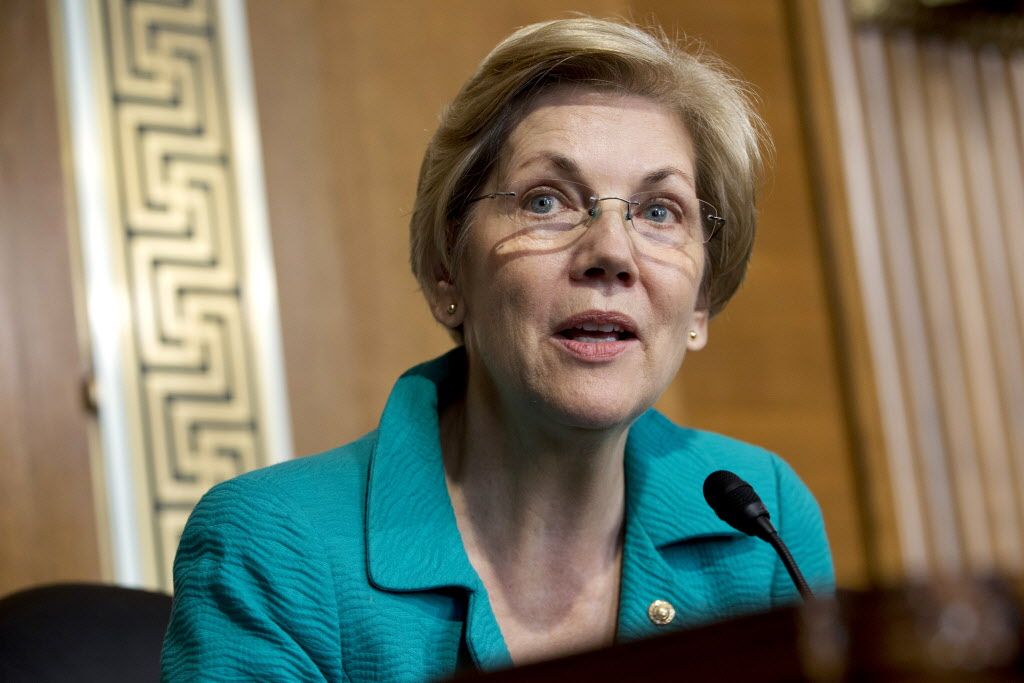
Sen. Elizabeth Warren (D-Mass.) says the accreditation system is “broken.” (Jacquelyn Martin/Associated Press)
Democratic Sens. Elizabeth Warren (D-Mass.), Dick Durbin (D-Ill.) and Brian Schatz (D-Hawaii) introduced new legislation on Thursday aimed at improving the college accreditation process.
"Accrediting agencies are supposed to make sure students get a good education and ensure colleges aren't cheating students while sucking down taxpayer money," Warren said in a statement to Politico. "But right now the accreditation system is broken."
The Accreditation Reform and Enhanced Accountability Act (AREAA) would address some of those issues by strengthening accreditation standards, and requiring accrediting agencies to be more responsive to allegations of wrongdoing.
Under the act, the Department of Education would be empowered to require that accreditors to consider a variety of student success metrics -- including “retention rate, graduation and payment rate, transfer rate, student earnings after graduation, and job placement rates” -- when determining eligibility. The Department is currently prohibited from setting such standards.
Accreditors would also be required to more quickly respond when colleges they’ve certified come under federal or state investigation or face lawsuits of “fraud or abuse, deceptive practices, or material harm to students enrolled.”
The bill would also restrict “conflict of interest” in the accreditation process by prohibiting individuals holding administrative and other roles, or individuals with financial stakes in an institution, from being involved in the certification process of that school. The bill also bars federally registered lobbyists from participating in the process.
Earlier: After ITT Tech Shutdown, A Look At For-Profit Colleges' Role In Higher Ed
Industry groups recognize the bill as an effort to provide more direct oversight of accreditation.
In a statement to On Campus, The Council for Higher Education Accreditation (CHEA)—an association of 3,000 degree-granting colleges and universities that recognizes 60 institutional and programmatic accrediting organizations—said, in part, “The [bill] is yet another indication of the shifting demands on accreditation. Accreditation is now called upon to play a more vigorous public accountability role—to do more to protect students and inform the public. This is in addition to accreditation’s longstanding role in assuring and improving quality, working with institutions and programs.” (CHEA does not represent accreditors, but describes itself as a "a primary national voice for accreditation and quality assurance to the U.S. Congress and U.S. Department of Education.")
The Accreditation Reform and Enhanced Accountability Act comes as the Department of Education on Thursday stripped the Accrediting Council for Independent Schools (ACICS), the country’s largest for-profit accreditor, of its right to certify schools.
In their fact sheet, Warren, Durbin, and Schatz mention that “it became painfully evident with the recent closure of Corinthian Colleges and ITT Tech, which were both still accredited at bankruptcy, that the failure of our quality assurance system hurts students and costs the government billions of dollars.”
On Campus intern Dina Kleiner contributed to this report.
Related: Nation's Largest Accreditor Itself Faces Deaccreditation










